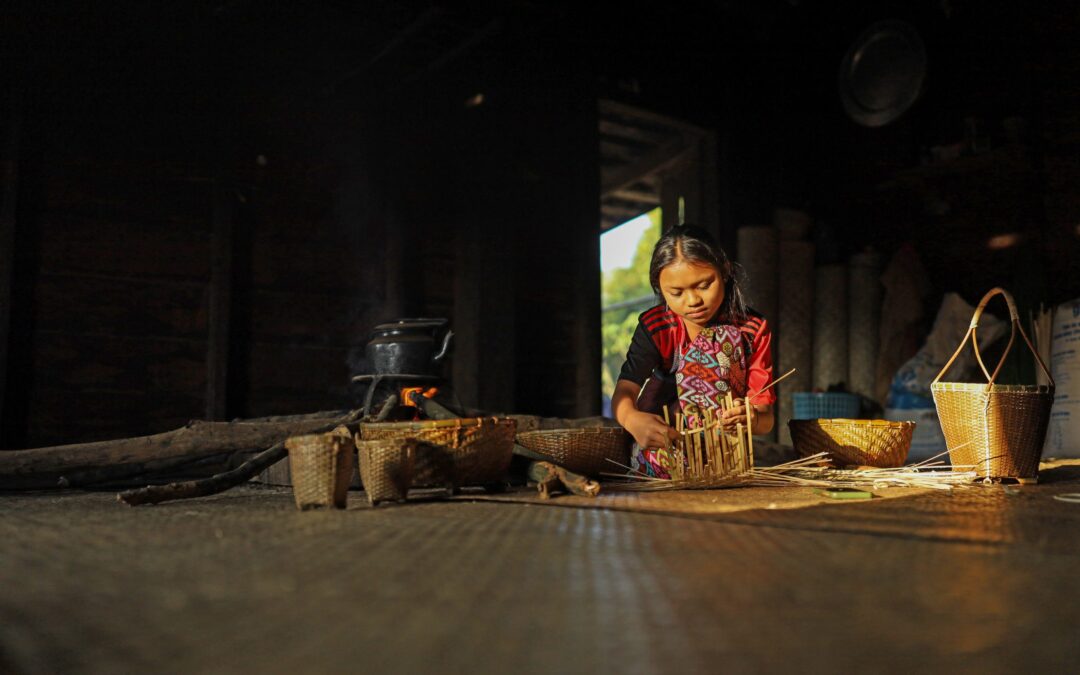Picture Courtesy Association Anoulak
Traditional conservation metrics often focus on wildlife populations, habitat protection, and economic outcomes. But what about the human communities who live alongside wildlife and depend on these natural resources?
At OneNature, we believe that truly sustainable conservation must enhance both ecological and human well-being.
The Wild Happiness Approach in Laos
Our recent partnership with Association Anoulak in Laos demonstrates how this integrated approach works in practice. Using the Wild Happiness Index, we assessed community well-being across multiple domains in four villages within Nakai-Nam Theun National Park—one of the largest remaining forest blocks in the Indochinese Peninsula.
The results were illuminating:
✅ 80% of respondents reported high environmental satisfaction
✅ 86% expressed willingness to participate in conservation efforts
✅ 83% highlighted strong social support networks
✅ 70% reported high life satisfaction—exceeding national and regional averages
This strong foundation for community-based conservation exists alongside deep cultural connections to the forest, reinforcing that protecting nature and preserving cultural heritage go hand in hand.
A Sustainable Future for Conservation
“Our program in Nakai-Nam Theun National Park has built upon the rich ecological knowledge and traditional handicrafts of local communities to create alternative income opportunities. Alongside these efforts, we have worked on long-term natural resource management and the preservation of cultural heritage. The Wild Happiness Index serves as a valuable tool to guide our focus, ensuring the program’s long-term sustainability with strong community ownership.”
– Camille N. Z. Coudrat, Director, Association Anoulak
The Wild Happiness assessment not only highlighted strengths but also areas needing attention before Association Anoulak transitions out of the area in 2025. While social bonds are strong, some villages face challenges in health access and livelihood opportunities. This knowledge allows for targeted support where it’s needed most.
Through our five-step Wild Happiness approach, we don’t just gather data—we engage communities in deep listening, collaborative analysis, and co-creation of solutions. This ensures that conservation initiatives align with local values and priorities, leading to long-term success for both people and nature.
The Future of Well-Being in Conservation
The work in Nakai-Nam Theun exemplifies OneNature’s core belief:
👉 When communities thrive, they become powerful stewards of their natural heritage.
👉 Understanding well-being leads to stronger conservation outcomes.
👉 Measuring and supporting these connections ensures sustainable conservation programs.
As we expand this approach globally, the lessons from Laos remind us that the path to sustainable conservation lies in supporting the holistic needs of communities who live alongside wildlife. Their well-being isn’t just a beneficial outcome—it’s essential to conservation success.
If you’re interested in integrating well-being into conservation, let’s talk!
📩 Reach out to info@onenatureinstitute.org
🔗 Learn more: https://onenatureinstitute.org/programs/wild-happiness/
With Gratitude
Beth Allgood and the OneNature Team
